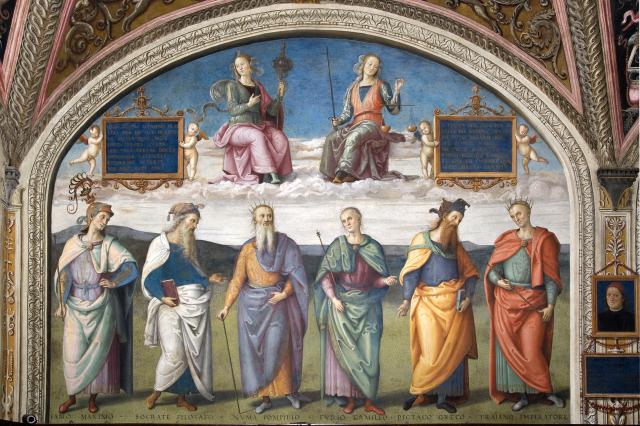Prudence and Justice with Fabio Massimo, Socrate, Numa Pompilio, Furio Camillo, Pittaco and Traiano
Historic seat of the Guild of Merchants and Money Changers

The painted lunette on the wall facing the bench (or tribunal) of the Cambio shows six figures in two groups of three: four of whom are Latin (Fabio Massimo, Numa Pompilio, Furio Camillo and Traiano) and two Greek (Socrates and Pittaco). Above them are the allegorical forms of Prudence and Justice. These references, already suggested by Catone Uticense’s (Cato the Younger) quotation, are clearly intended to exhort those who practise their trades here to behave in line with what they symbolise.
The plaque held by an angel next to the image of Justice reads as follows: “If all behaved as these three, there would be no crime or evil in the world. When I am honoured peoples flourish in peace and war but without me once great things are brought low.”
Among these worthy figures that of the emperor Traiano stands out as in the ancient world with regard to his behaviour concerning the mother of a man who had been murdered. The latter, once she learned the case was to be heard by the emperor, insisted that she be granted an audience with Traiano. When she was told the case would only be examined after his return from the Dacian wars he was shortly to embark on, she redoubled her efforts to ensure justice be meted out swiftly. Upon which, Traiano, feeling a strong sense of duty, decided to delay his departure for the war in order to fulfil his obligations as supreme justice. This legend was made famous, albeit indirectly via allusions, in the Paradise and again in the Purgatory verses of Dante Alighieri’s Divine Comedy.